Senzo Mbatha: Administrator with the Midas Touch
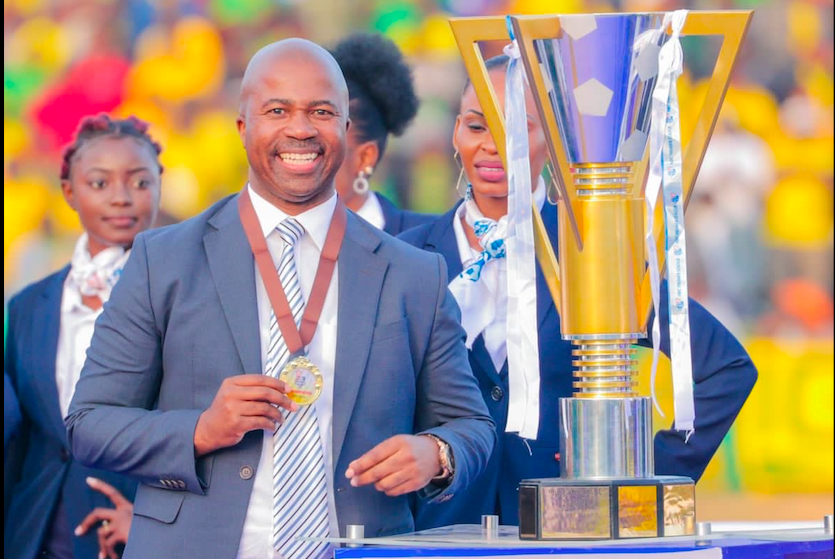
As I walked into the hotel restaurant just hours after Young Africans completed the domestic treble, a waiter shouted, “Yanga Mabingwa”.
I’d mastered a few Swahili words and knew what he said meant, ‘Yanga are champions’.
Tanzania’s oldest club Young Africans had just beaten Coastal Union after a penalty shootout to lift the Azam Federation Cup final. The Azam triumph came just two weeks after they wrested the coveted league title from their bitter rivals Simba, winning it unbeaten.
His following statement gets me thinking – and thinking deep.
“Senzo is a genius,” he says. I get curious and ask him what he means.
Not that I doubted what he was saying or the man Senzo Mbatha, formerly Mazingisa. Coming from South Africa, I was naturally curious to hear more about a man I hold in high regard. Also, I’d just realised how much impact the former Platinum Stars general manager had made in a far-flung land.
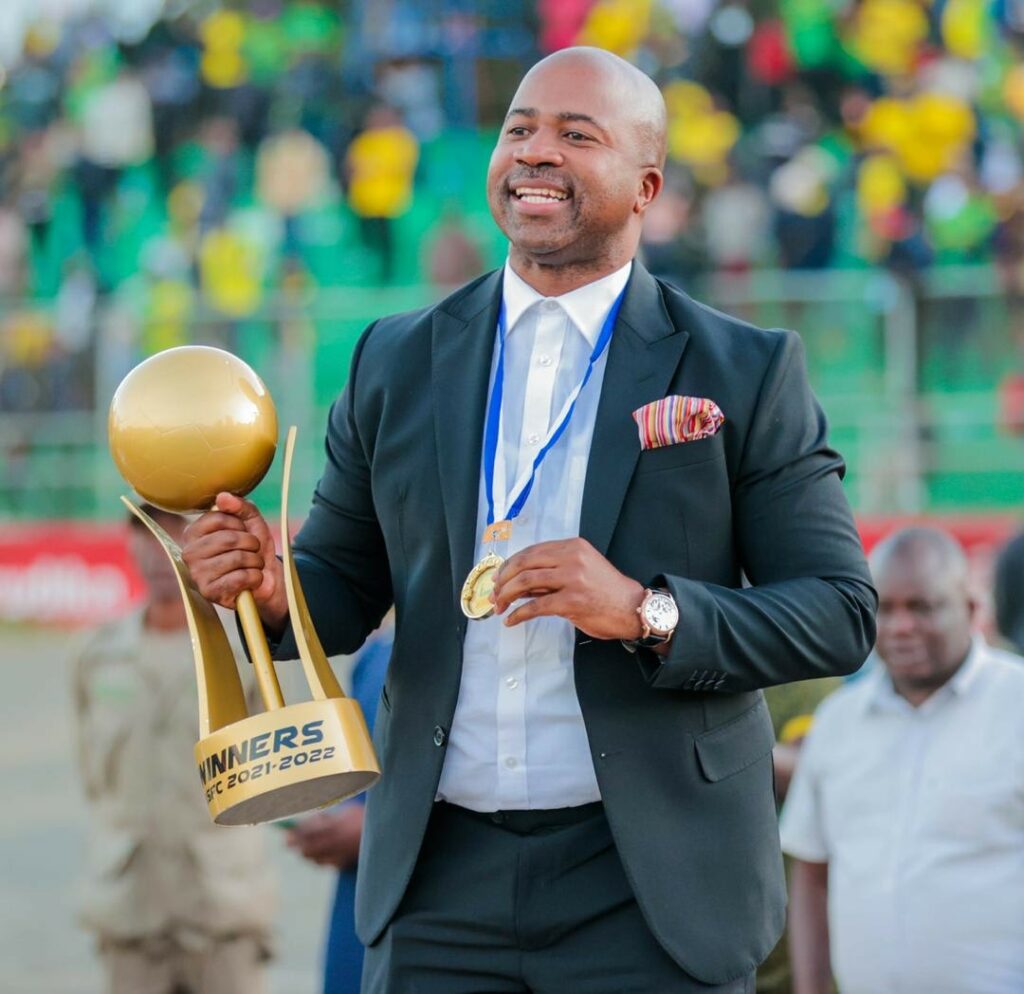
Interestingly, the Timu ya Wananchi [The Citizens] treble is not his first. The first was at Orlando Pirates in 2012, having worked for the Soweto giants between 2011 and 2013.
He left the Soweto giants for now-defunct Platinum Stars in 2013, where he also enjoyed success. Dikwena clinched the MTN8 and Telkom Knockout Cup before he left the club in September 2017.
“Success follows this man everywhere. Whenever he joins a club, you can tell there’s a difference administrative,” an ardent football follower from Zimbabwe, Paul Mandima, says.
Funny enough, the man from Boipatong township in the Vaal singles out the Yanga treble as the sweetest.
“This is big, not just for the team, but for me as well,” he tells me as we munch on morsels later that evening.
Perhaps it’s because they had not tasted success when he joined the Jangwani giants in three years. On the other hand, their rivals were flying fresh after billionaire Mo Dewji had injected cash into the club, citing they wanted to be the ‘next TP Mazembe’.
That dream necessitated Mbatha’s move to the East African country – home to the highest single free-standing mountain above sea level– Mount Kilimanjaro.
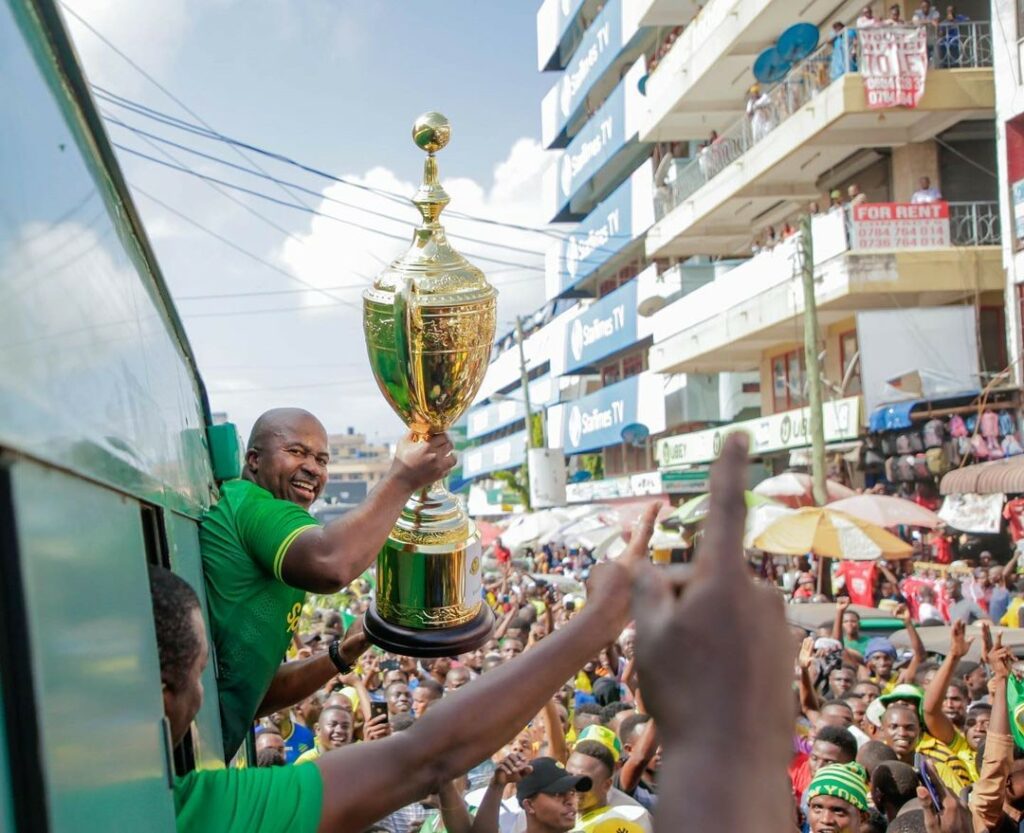
Of course, his move to Dar es Salaam was shocking, leaving what has become a comfort zone for many an administrator. Fortunately or unfortunately, whichever side you belong to, his first job with Simba lasted an entire season before unceremoniously leaving.
“We had been told he was not happy there, and so we approached him,” Hersi tells FARPost in a separate interview.
At the time, Hersi, elected the club’s first president on Saturday, had just begun his tenure as chairman of Yanga’s Signing Committee to turn the club’s fortunes around. Multinational conglomerate GSM had just come on as a partner.
While Simba mistreated the man, their rivals watched and plotted how they would bring him across. Having quit Wekundu wa Msimbazi on a Sunday, he found himself at the towering Salamander Towers on Samora Avenue in the heart of Dar es Salaam, which houses Yanga, exactly a day later.
In his new corner office, he could see the majestic sea each time he glanced to his right. But that was never important because his switch had caused a serious stir.
It was no surprise to him because his time at Simba had shown him how much enmity existed between the two Tanzanian giants.
But Yanga knew they had their man as they rebuilt the club one block after another. He spoke Swahili as fluently as Zulu in record time, which made it easy.
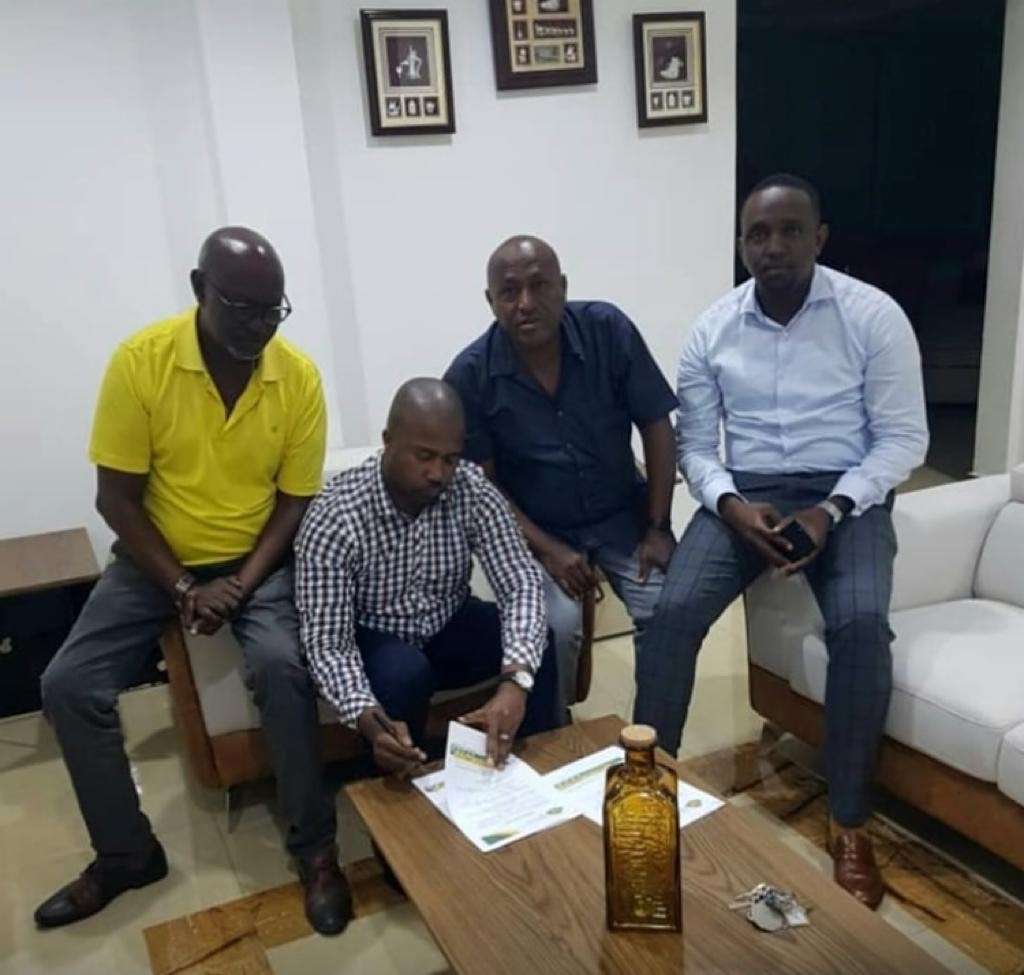
The work began, hand in glove with Eng. Hersi, who was then 36. Chief among the things that had to change was squad composition, and some major decisions had to be made.
A good 15 players had to leave at some point; the club needed new camping facilities and proper travel arrangements.
“In the past, the team would drive over two days to a game, and they would be tired. It was not good at all. All that had to change,” says Philemon Ntahilaja, former chairman of Yanga Family, a committee set up to raise funds for the team.
Exactly a year into his stint at Yanga, they finished second in the league, lost in a cup final and won the Mapinduzi Cup.
The second-year was different. Yanga had transformed into a formidable side. The transformation exercise was in full swing, and fan engagement brought in US$500 000 in six months.
Soon, Mbatha would learn there was a role he had to play.
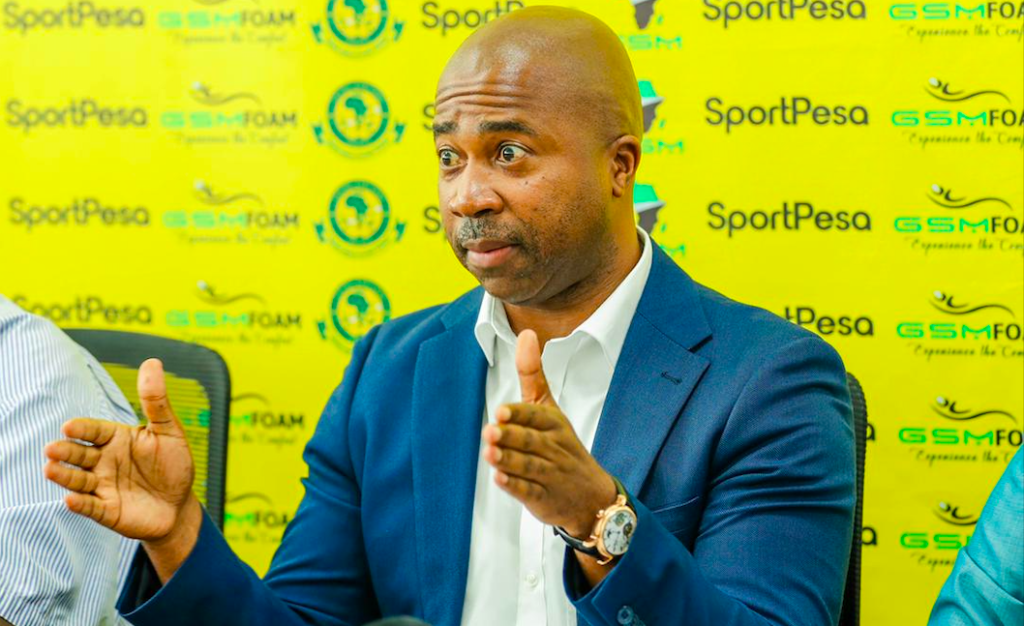
“Yanga struggled quite a lot since 2015 with no sponsor. When GSM came in, things started changing. Fans were happy as the team began what looked like a proper rebuild.
“But you must understand Yanga is a community team, and there are elders who feel a tremendous sense of ownership of the club.
“It came to a point where they felt GSM was taking the ‘shine’ away from them. You know the politics in community clubs.
“The role Senzo played was balancing forces. The club needed someone to bring these two – GSM and the previous executive – together, which is what Senzo did.
“It’s quite surprising that a man from outside was the one who held the two together, ” the hotel waiter explains.
It’s one of those things that the ordinary fan would not understand or realise, but it’s essential for the club’s stability. The sponsors GSM and the old club executive would clash. Someone was taking more limelight than the other.
“My ability to manage the politics within the Club has been the biggest highlight because we needed someone sober who can manage the two factions and differences within the Club,” says Mbatha.
Two years later, he celebrated the treble, bringing the number of trophies he has won in Tanzania to seven. The first three were with Simba – the Community Shield, Vodacom Premier League and Tanzania League Cup.
“Senzo came to change Tanzania football; he’s done well wherever he has been. His role at the team is massive,” Yanga striker, Yusuph Athuman, tells FARPost.
It explains why there was hullabaloo when FARPost carried a story that said Mbatha is considering returning home at some point.
“It’s my hope that I go back home. I have a very young family back in South Africa, so I will be returning home. When? I don’t know. Only God knows what plans he has for me,” he said.
Perhaps after almost three years in East Africa, it’s time for the man to return home and plough back everything he has learned. Without a doubt, the country is yearning for more administrators in the mould of Mbatha.
Fortunately, it’s not a case of a prophet honoured in a far-flung land because the man gets the same respect at home.
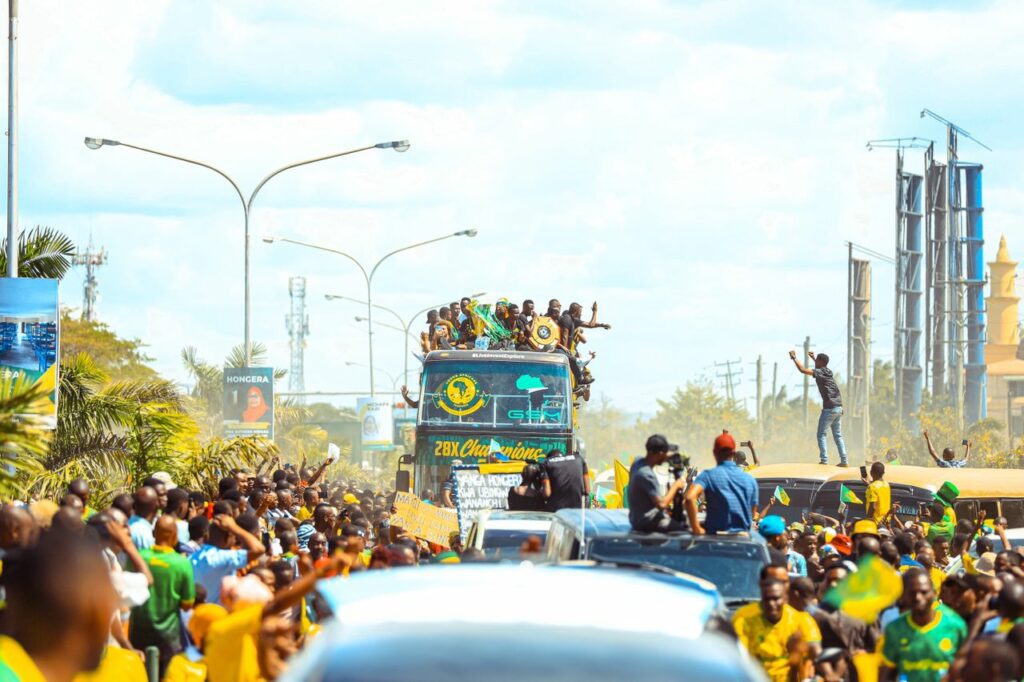
RELATED STORY: Hersi Ally Said: The engineer who orchestrated Yanga’s revival